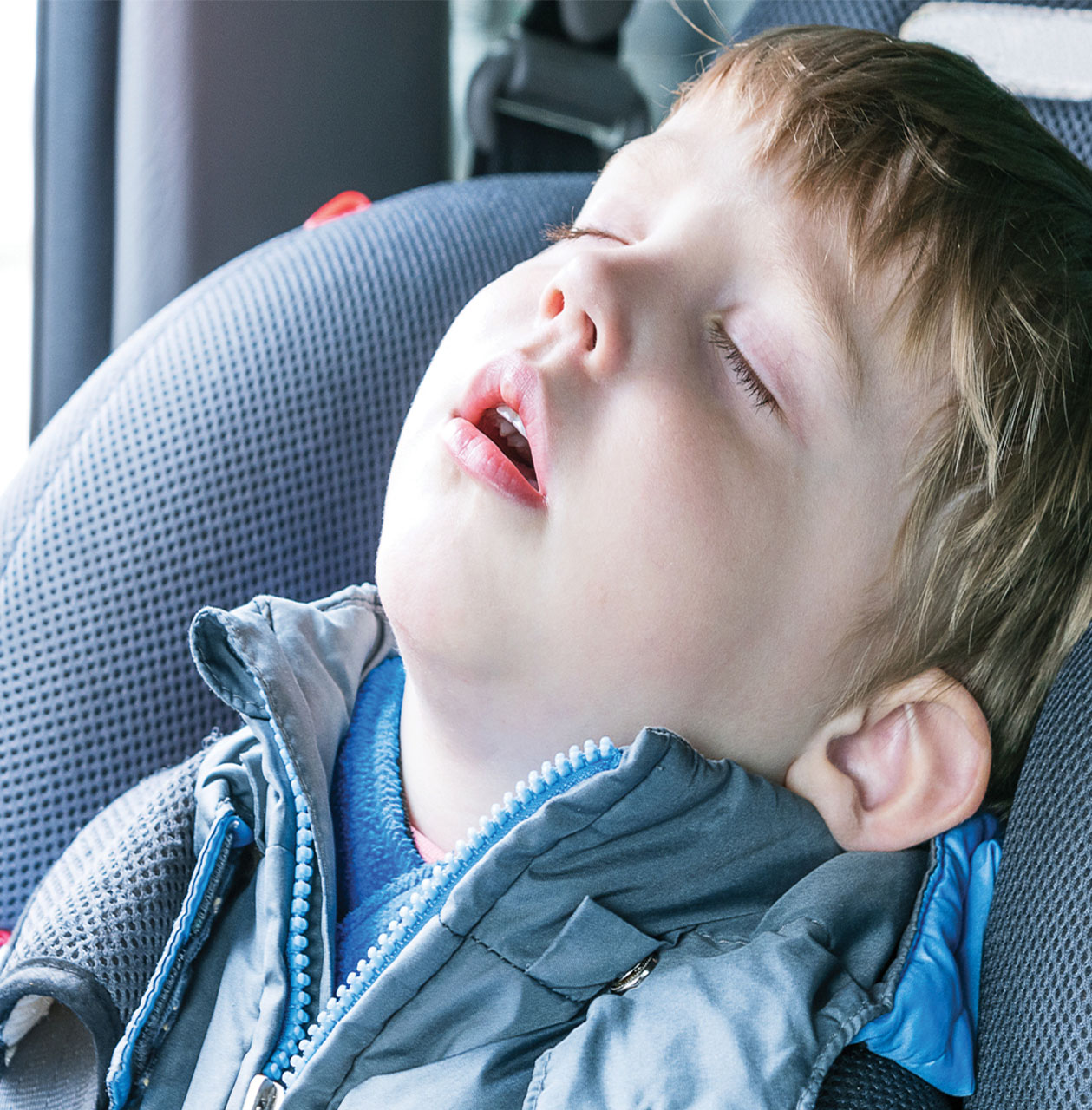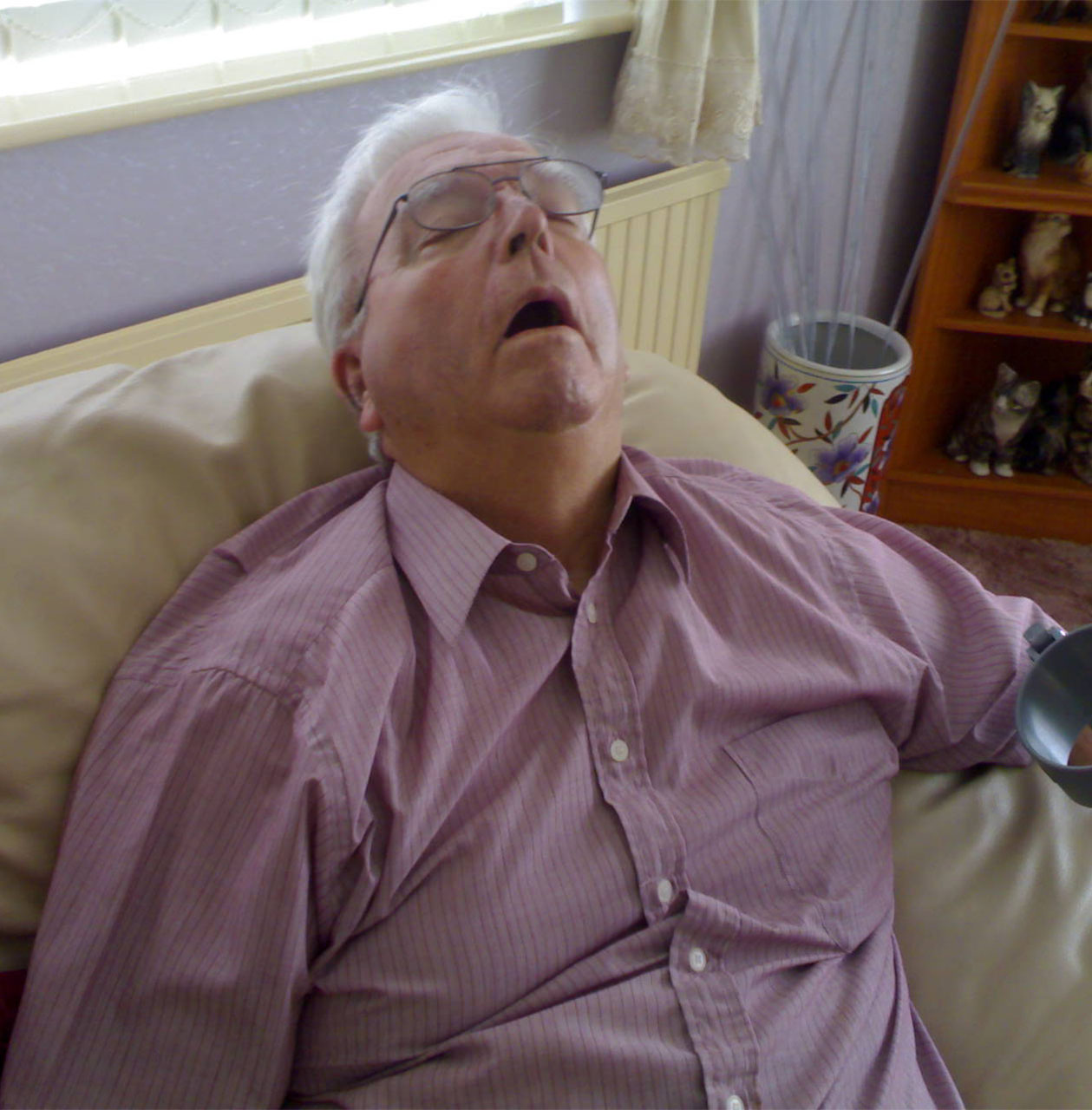Through the night
Nothing beats a good night sleep

Breathing at night should be silent, regular, through your nose with your lips resting gently together.
Disordered night time breathing can range from simple mouth breathing, be heavy and audible breathing, involve gasping snorting and snoring or actual pauses in breathing. These signs tend to be more subtle in children and in women before menopause, and apart from an open mouth and altered body posture, you may need a sleep study to show it.
Rather than pauses in breathing (apnea events) in women and children, sleep studies may show mini-arousals, where your body continually pulls itself out of REM sleep without fully waking you up. This leads to missing out on the healing benefits of full sleep cycles. While the only outwards signs may be sleeping with you mouth open and your head tilted back, the symptoms of waking with a dry mouth, a morning headache, feeling tired, experiencing brain fog and higher levels of anxiety or depression are strong indicators that your breathing may be playing a role in your health.


The Nasal Release Technique helps open up your airway and ensures your sinuses are able to drain effectively. Clear sinuses and open airways can have a big impact on your sleep.
Strengthening the tone of your airway, with the Myofunctional VoiceGym, can help prevent it collapsing in your REM sleep.
Increasing it’s tone may help you avoid the need for a CPAP device.

The effects of sleep apnoea are well established in adults. According to Harvard Health, the quality of your sleep affects learning and memory, as well as metabolism and weight. Sleep loss can result in irritability, impatience, an inability to concentrate, and moodiness. A lack of sleep can affect your cardiovascular health. Sleep disorders have been linked to hypertension, increased stress hormone levels and an irregular heart beat. Sleep deprivation alters immune function, including the activity of the body’s killer cells. Better sleep may improve your fertility and help lower your cancer risk.
It’s effect on children is gradually becoming better known. Mini arousals may affect their ability to self regulate, to focus, to retain and consolidate learning. They may be restless, sweaty sleepers, have night terrors, grind their teeth or have problems with bedwetting and again may sleep with their heads tilted back and their mouths open. The extreme of this is ‘tripod sleepers’, where they sleep on their front, with their heads fully extended and bottoms sticking up in the air. Its all cute until you understand the reason behind it.
During the day, tired kids are often wired kids. Many children with diagnosis of ADHD and being on the spectrum have undiagnosed challenges with breathing adding to the severity of their symptoms.
In the teenager years, mouth breathing can heighten the experience of emotional issues, most commonly increasing anxiety in girls and depression and aggression in boys.
Mouth breathing at any age, day or night, is an indication that something is not working as well as it could or should be. Snoring is never cute. It is an indication that your body is struggling to breathe. Disordered breathing doesn’t just happen while you’re asleep. If you’re breathing badly at night your breathing will also be compromised during the day.

Daily Breathing exercises are a great way to start your day, and equally a great way to wind down at night to get yourself ready for bed. If you find yourself awake through the night and unable to sleep, breathing exercises can also be of help getting you back to sleep.
Daily Breathing exercises can help reset bad breathing habits. Dr Alison's recorded breathing exercises take you through breathing in different body postures, allowing you to focus on breathing with the correct body mechanics.
Always done through your nose, using your diaphragm, keeping your breath low, slow, soft and silent, the various postures allow you to feel any restrictions in your breathing to help you retrain better breathing habits.
A small sequence is added at the end that stimulates many of your cranial nerves; the last of which is the ‘gentle face painting’.
They go for 18 minutes in total and are a great way to help you wake up to or wind down from your day, whichever fits best with your lifestyle.

